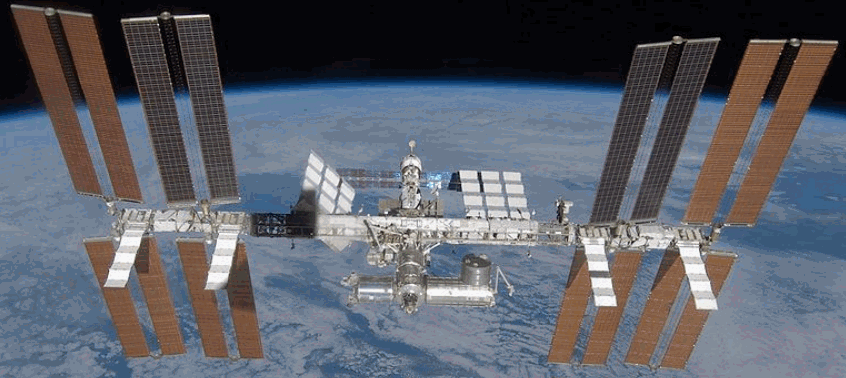|
|
|
|
|
|
|
News & Views item - July 2009 |
![]() A Fool's Errand? (July 20, 2009)
A Fool's Errand? (July 20, 2009)
While the United States and its partners (United Kingdom, France, Denmark, Spain, Italy, The Netherlands, Sweden, Canada, Germany, Switzerland, Belgium, Brazil, Japan, Norway, and Russia) continue to pour billions of dollars into the construction and maintenance of the International Space Station its function as well as the full cost of the project remains a mystery. The European Space Agency, the only agency actually stating potential overall costs, estimates €100 (A$176) billion for the entire station over a period of 30 years.

The International Space Station as it appeared at the end of March 2009
Now with the 40th anniversary of man's first step onto the moon the matter of returning men to the moon as well as developing manned expeditions to Mars and an asteroid or two has grabbed the attention of the media.
The recent confirmation by the US Senate of Maj. Gen. Charles Bolden as NASA Administrator brought forth this quote: "We will go on to the Moon." He is a former astronaut who piloted the Shuttle that took the Hubble Space Telescope into orbit.
Six months ago, president Obama also talked of returning to the Moon. But when the Administration's budget papers were published, there was no allocation for Luna travel.
The anniversary has also caused Norman Augustine, the retired aerospace executive who is chairing a blue-ribbon panel examining alternative futures for the U.S. human space flight effort to call a media conference. He noted that when President Kennedy called for the US to land humans on the moon there was a groundswell of support from the public and Congress. But that is an experience, he noted, that has not been repeated since.
Andrew Lawler of ScienceInsider writes: "Augustine’s reflections may be a sign that the 10-person committee won’t push a bold commitment to an expensive human mission to the Moon, Mars, or an asteroid, when it submits its recommendations to the White House at the end of next month [and while] he stopped well short of outlining what objectives and goals the panel might suggest, [he]added that 'there is a strong sentiment that whatever we do, we have to have a budget that underpins what we do.' Augustine added that 'anything else is a disservice.' He did say that the panel is mulling over what role commercial launchers and potential foreign partners might play in a future human space flight effort. The panel will hold several public meetings across the United States through mid-August."
Who knows rationality may prevail. Bob Park in his What's New blog puts it this way:
MARS: ASTRONAUTS REMAIN STUCK IN 1969
This is the 21st century. Telerobots have been invented. Our two Mars rovers, Spirit and Opportunity, are merely robust extensions of our fragile human bodies. They don't break for lunch or complain about the cold nights, and they live on sunshine. They do suffer the afflictions of age. Their teeth are worn down from scraping rocks, and one has an arthritic foot that he drags behind him. But their brains are still sharp since they are the brains of their PhD handlers. No need to bring them home when they are no longer able to explore, they will just be turned off.
Bolden said he wants to go to Mars. How incredibly old-fashioned!
We are on Mars now. We have been on Mars for more than five years, looking for evidence of water and life. A human on Mars would be locked in a spacesuit with only the sense of sight. Our rovers have better eyes than any human, and we don't have to take their word it; everyone can see what they see. How wonderfully democratic!
Moreover, they have the IQ of their PhD operators back on Earth.